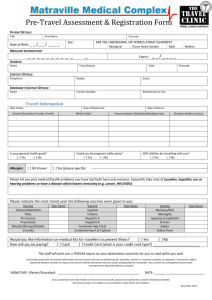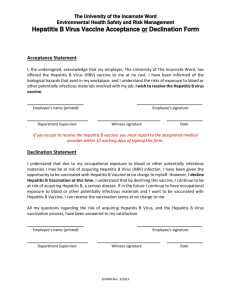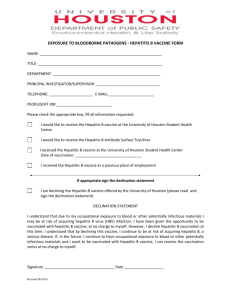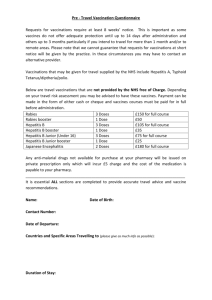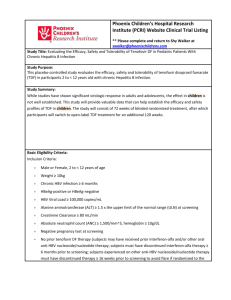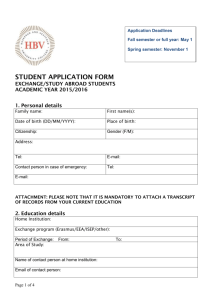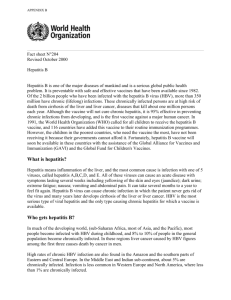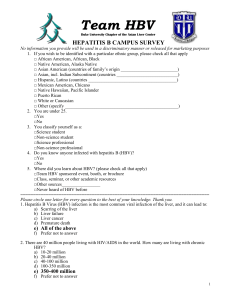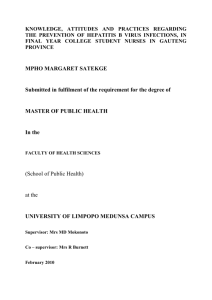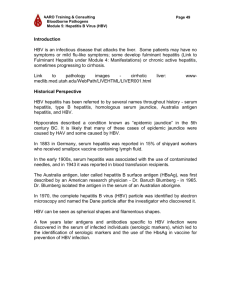hepatitis b vaccination waiver form
advertisement
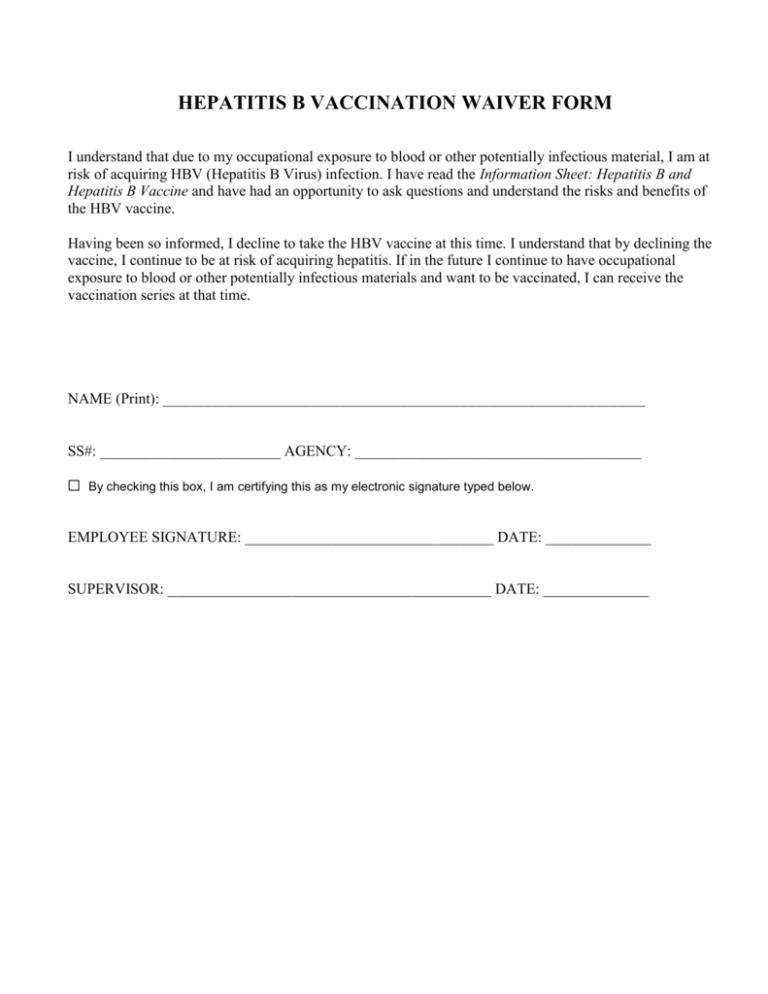
HEPATITIS B VACCINATION WAIVER FORM I understand that due to my occupational exposure to blood or other potentially infectious material, I am at risk of acquiring HBV (Hepatitis B Virus) infection. I have read the Information Sheet: Hepatitis B and Hepatitis B Vaccine and have had an opportunity to ask questions and understand the risks and benefits of the HBV vaccine. Having been so informed, I decline to take the HBV vaccine at this time. I understand that by declining the vaccine, I continue to be at risk of acquiring hepatitis. If in the future I continue to have occupational exposure to blood or other potentially infectious materials and want to be vaccinated, I can receive the vaccination series at that time. NAME (Print): ________________________________________________________________ SS#: ________________________ AGENCY: ______________________________________ ☐ By checking this box, I am certifying this as my electronic signature typed below. EMPLOYEE SIGNATURE: _________________________________ DATE: ______________ SUPERVISOR: ___________________________________________ DATE: ______________ INFORMATION SHEET Hepatitis B and Hepatitis B Vaccine Hepatitis B, a viral infection of the liver, is caused by the Hepatitis B virus (HBV). In the United States, some 300,000 persons are newly infected with HBV each year. Occupational work related acquisition of HBV occurs through a needlestick, mucous membrane or non-intact skin exposure to blood and other body fluids containing the HBV. The risk of contracting Hepatitis B from a single contaminated needlestick ranges from 6% to 30%. Each year approximately 12,000 healthcare workers (HCW) contract work-related Hepatitis B. Three hundred of these will ultimately die from Hepatitis B related complications. Healthcare workers are 20 times more likely to contract HBV infection than the general public. There is a 15% to 30% prevalence of Hepatitis B markers in physicians and HCWs indicating prior exposure to the virus. Since 1970, 20 reported cases of HBV infection from HCWs to patients have been reported. Although HBV is an unpredictable disease that may incapacitate a person for weeks or months and lead to complications, most people develop antibody to the virus and recover completely. However, 5% to 10% of infected persons become chronic carriers of HBV and never develop antibodies. One in 200 persons in the United States is chronic HBV carriers. It is estimated that 1% to 2% of all hospital admissions are Hepatitis B antigen positive. A carrier is infectious to others and has an increased risk of developing long-term complications, such as chronic active hepatitis, cirrhosis of the liver and primary carcinoma of the liver. Carriers have a risk 273 times greater than that of the general population of contracting liver cancer. A vaccine is available for the prevention of Hepatitis B infection. It is a non-infectious genetically engineered recombinant DNA vaccine. No substances of human origin are used in its manufacture. The vaccine is administered in the deltoid area in a series of 3 doses over a 6-month period. The second dose is given one month after the first and the third dose 5 months after the second or 6 months after the first dose. Protective antibody titers are achieved in 95% of those vaccinated. The incidence of side effects, both local and general, has been minimal among recipients of the vaccine. Broad use of the vaccine could have adverse reactions not observed during clinical trails. The most common adverse reaction is local soreness at the injection site. Less common reactions include erythema, swelling and warmth or induration of the injection site which is generally well tolerated and usually subsides within 48 hours. Low grade fever (101) occurs occasionally; fever over 102 is uncommon. Systemic complaints, including fatigue, malaise, nausea, vomiting, headache, myalgia and arthralgia are infrequent. Rash has rarely been reported. There has been no cause and effect relationship established between the vaccine and neurological disorders. This vaccine is contraindicated in persons allergic to yeast. HBV vaccine would not be expected to be harmful to a developing fetus; however, its safety for the fetus has not yet been demonstrated. Accordingly, HBV vaccine is not generally recommended for pregnant women or nursing mothers. If you have a medical condition, allergies, are pregnant or breastfeeding, please consult your physician for direction prior to receiving the vaccine.

